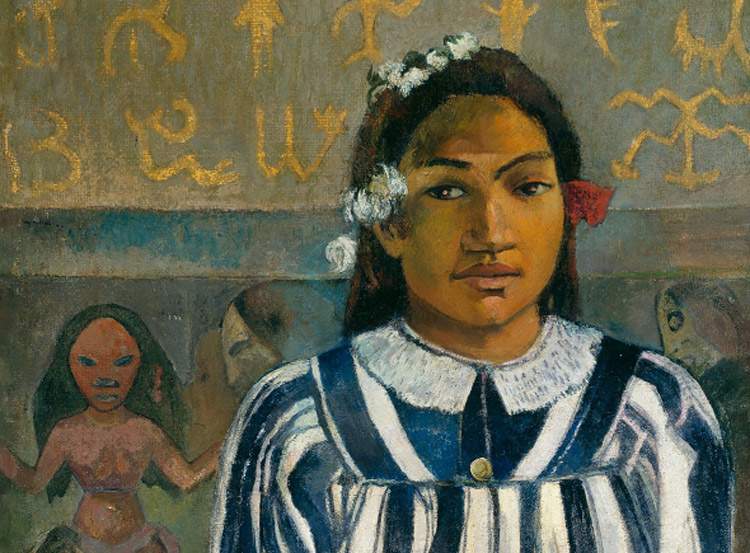The Gauguin Portaits exhibition, running at the Sainsbury Wing of the National Gallery in London until next Jan. 26, will be remembered not only for being the first-ever exhibition devoted to the portraiture of Paul Gauguin (Paris, 1848 - Atuona, 1903), but also for the fact that the exhibition asks the question of how the artist behaved during his stays in Tahiti: Gauguin first landed on the Polynesian island (then a French colony) in 1891, staying for two years, then returned there in 1897 only to abandon it in 1901, when he moved to Hiva Oa, where he disappeared in 1903.
It is especially his relationships with young islanders that are the focus of the exhibition, curated by Cornelia Homburg and Christopher Riopelle. Gauguin’s life and art, the curators assure, “is now increasingly under scrutiny, and this is especially true of his time in South Polynesia. The National Gallery aims to explore this controversial subject and stimulate reflections that consider Gauguin’s relationships and the impact of colonialism through the prisms of contemporary debate.” The National Gallery’s caption panels thus inform that “Gauguin undoubtedly exploited his position as a privileged Westerner to obtain as much sexual freedom as he could secure,” and that “in Gauguin’s time, colonial Europe’s misogynistic fantasies about Polynesian women were widespread. The artist repeatedly had sexual relations with very young girls, ’marrying’ two of them and having children with them. Teha’amana’s view of their relationship, however, has not been recorded. ”The reference is to Teha’amana, one of the girls Gauguin took as his wife, the subject of many of his paintings, beginning with Merahi metua no Te ha’amana (“The Ancestors of Teha’amana”) from the Art Institute of Chicago, one of the masterpieces in the exhibition.
In the Anglo-Saxon world, therefore, a further critical and journalistic debate has opened up about whether it is possible to separate an artist’s work from his or her life and particularly his or her moral behavior. Museologist Janet Marstine stated, in an article in the Telegraph by Ed Southgate, that “the National Gallery has taken an important step forward in recognizing that it is no longer ethically tenable to interpret works within the framework of empty aestheticism: an artist’s position in Western canons does not make him immune from his moral obligations.”
In the New York Times, Farah Nayeri, wondering whether we should revisit the way we look at Gauguin’s art, records the position of several scholars, beginning with curator Riopelle, who argues that it is no longer time to turn a blind eye to the way artists behaved: “Gauguin was a very complicated, impulsive and insensitive person,” Riopelle argues, declaring himself moreover “disappointed” that his need to create works of art “led him to hurt people, or abuse them in such a bad way.” Vicente Todolí, who is now artistic director of Pirelli HangarBicocca in Milan but curated a major exhibition on Gauguin for Tate Modern in 2010, says that “you can totally abhor and detest the person, but his work is his work: once an artist creates something, it no longer belongs to the artist, it belongs to the world.” The stance of curator Ashley Remer, founder of an online museum (girlmuseum.org) dedicated to the representation of girls in history and culture, is harsh: “Put bluntly, Gauguin was an arrogant, patronizing, overrated pedophile. If his paintings were photographs they would be much more scandalous works and we would not have accepted them today. However, I am not saying to pull the works down from the walls: I am simply saying that we need to explain and reveal everything, but really everything, about the person.”
Pictured: Paul Gauguin, Merahi metua no Teha’amana, detail (1893; oil on canvas, 76 x 54 cm; Chicago, Chicago Art Institute)
 |
| Was Gauguin a colonialist pedophile? An exhibition in London questions his dealings in Tahiti |
Warning: the translation into English of the original Italian article was created using automatic tools. We undertake to review all articles, but we do not guarantee the total absence of inaccuracies in the translation due to the program. You can find the original by clicking on the ITA button. If you find any mistake,please contact us.